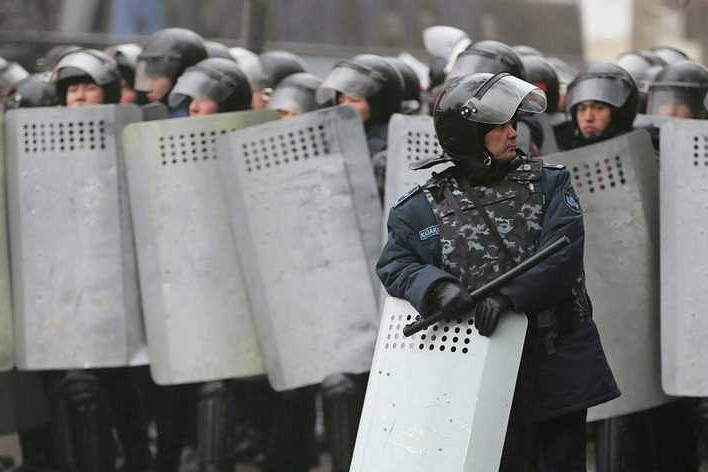Ukraine’s Foreign Ministry put out a statement on Jan. 10 condemning the violence in Kazakhstan over the past week, surprising many with the communiqué’s cautiousness and lateness.
The statement came three days after that made by U.S. Secretary of State Anthony Blinken, and two days after that made by EU High Representative for Foreign Affairs Josep Borrell.
Kazakhstan’s anti-government protests grew out of a demonstration about LPG (liquefied petroleum gas) prices on Jan. 2. On Jan. 5, the protests hit international headlines following large outbreaks of violence, particularly in Kazakhstan’s largest city, Almaty.
Ukraine’s statement used tentative wording, condemning the acts of violence without making any accusations towards the Kazakh government or President Kassym-Jomart Tokayev, who ordered his army to “shoot to kill (protestors) without warning” in a Jan. 7 televised address.
Non-state actors have also committed acts of violence throughout the protest period, including setting government buildings on fire. Whether these acts are committed by genuine protestors or provocateurs has not yet been established.
The communiqué by Ukraine’s Foreign Ministry did, however, note the presence of the Russian-led CSTO (Collective Security Treaty Organization) military force in Kazakhstan, after Tokayev requested their intervention on Jan. 5.
“Foreign troops should respect the independence, sovereignty and national legislation of Kazakhstan and international law, and their stay should not extend beyond the declared limited period of time,” the Ukrainian statement reads.
Yurii Poita, head of the Asia-Pacific section at the Kyiv-based New Geopolitics Research Network think-tank, told the Kyiv Independent that only those in the ministry know the true reasons for the delay, but one could speculate that officials needed time to work out what was happening, and which position Ukraine should take.
“Time was likely needed to work out what happened, and which particular threats Ukraine should highlight (in its statement),” he said, pointing out that Ukraine drew attention to the entry of Russian troops into the country.
Ukraine’s Crimean Peninsula and parts of the coal-rich Donbas region have been occupied by tens of thousands of Russian troops since 2014. Russia's war against Ukraine has killed more than 13,000 people since then.
Poita also highlighted some potential pragmatic reasons why Ukraine’s statement may have been watered down.
“Kazakhstan does not recognize Russia’s illegal annexation of Crimea, it tries to maintain constructive economic relations with Ukraine in a variety of fields, including agriculture, recycling, transit, energy, aircraft manufacturing, and others,” he said.
“The U.S., for example, does not depend as much on good relations with Kazakhstan as Ukraine does.”
Poita also expressed concern that Tokayev’s new dependence on Russia will hurt Ukraine’s interests.
“Firstly, Kazakhstan could change its position on Crimea,” he said. “Secondly, in my opinion, Russia will spread its narratives more actively in Kazakh media, including those of an anti-Ukrainian nature.”













